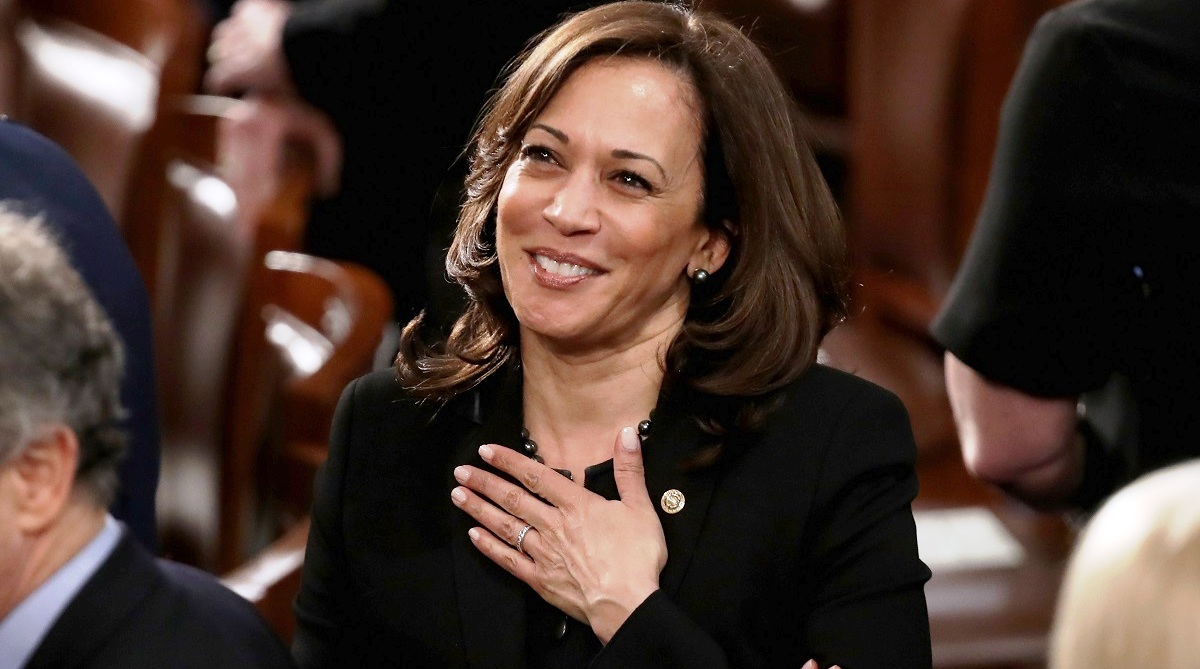In 2010, Deepak Puri and Shareen Punian, a San Francisco-based Indian-American couple organised a fundraiser for San Francisco’s high profile district attorney for six years, then running for the post of California’s attorney general. They had only learned recently that that district attorney was “one of their peeps,” a woman whose mother was an Indian immigrant. Hence the fundraiser.
Who was that high profile district attorney who had kept her Indian heritage so hidden? She was Kamala Harris, now Joe Biden’s pick for vice president of the United States.
In the US, one hears a common refrain from mainstream Americans. Oh, I love India and Indian people. Why? Oh, I adore Indian food. I love chicken tikka masala. So you love chicken tikka masala, that’s why you love India and Indians? I think one can love a people’s food and still not like them.
In a video with Indian-American comedian and actress Mindu Kaling posted on Harris’s Youtube page during Harris’s failed presidential run, the Vice-Presidential nominee says that she grew up eating Indian dishes: “Lots of rice and yogurt, potato curry, dal, lots of dal, idli.”
Harris’s mother, Shyamala Gopalan, was a Hindu Brahmin and a single mother. She nevertheless raised Harris as a black girl. Her house resonated with music of black American artists. Shyamala would sing along to Aretha Franklin’s early gospel.
Two mainstream cultures dominate American life, the white and the black. One is mainstream American if one belongs to one of them. All those Indian-Americans who hyphenate themselves are delusional. They are seen as simply Indian in the US, even if they were born in the country. Shyamala wanted to ensure that Harris conformed to one of the dominant cultures, the black one.
Harris went to a prominent black university, Howard. There she joined the largest black sorority in the country, AKA. She seemed to hang out mostly with black people. Then she went to UC Berkeley’s law school, where she became president of the black law students chapter. Today, Harris is a proud Christian, who attends a baptist church.
Another proud Chirstian is Nikki Haley, born as Nimrata Randhawa to first-generation Sikh immigrants to the US. Haley recently counseled Indians in the US that the path to success in the US lay in assimilation into mainstream culture. In her case, she seemed to have assimilated into white culture because of the paleness of her skin.
But how much can a first-generation immigrant assimilate? I have been in the US thirty years. I have modified my accent, flattening the obvious Indian “sing-song” intonations, but I still clearly seem to have an Indian accent. I date American women. I force myself to like American sports, even though I have never succeeded. I am a devout Hindu, yet I pray to Jesus, if only because were I to be hitched to a Christian girl I should appear to be more palatable.
Over-assimilation into American culture seems to work better for second- generation immigrants like Harris, Haley, and Bobby Jindal (the former governor of the American state of Louisiana), all of whom speak with a pronounced American accent and all of whom have become devout Christians. Jindal was born to Hindu parents, but converted to Christianity when he was in school.
In 2007, when 359 Christian, Jewish and Muslim members of the US House of Represnetatives passed a non-binding resolution recognising the significance of the Hindu and Sikh festival of Diwali, Jindal, then a House member, was one of only a handful of legislators who publicly abstained.
The American Constitution, like the Indian, explicitly separates church from state. In India, religious minorities have ascended to the highest offices in the land, all the while visibly demonstrating their faith. America often preaches religious freedom across the globe. Minnesota-based physician Aseem Shukla, co-founder of the Hindu American Foundation, believes the barrier of religion looms large over Indian Americans in politics. “While we may have transcended race, we haven’t become truly pluralistic. Can my children dream of becoming the President of the United States as Hindu Americans? Right now, I don’t think so.”
Have Harris, Haley, and Jindal sold their soul and disavowed their Indian heritage to seek high political office in the US? Yes, positioning themselves as Hindu or Sikh clearly makes them obvious targets in what is still a rabidly-Christian country. It is understandable that to further themselves in American politics, they might have had to downplay their Indian heritage.
All of India is agog with Harris’s climb in America. Indians in India love to claim people of Indian heritage in the US as one of their own once the latter have made it. But only if they have made it. The ones in the US who seem to have made it always seem pleasantly stunned by the wild reception that they get in a land so far away and in a land that they have apparently abjured.
Harris is now two steps away from becoming the president of the United States. If she does make it to the White House, hopefully her love for idli and sambhar would not be the only love for India and things Indian that she will carry along with her.
The writer is an expert on energy and contributes regularly to publications in India and overseas.











